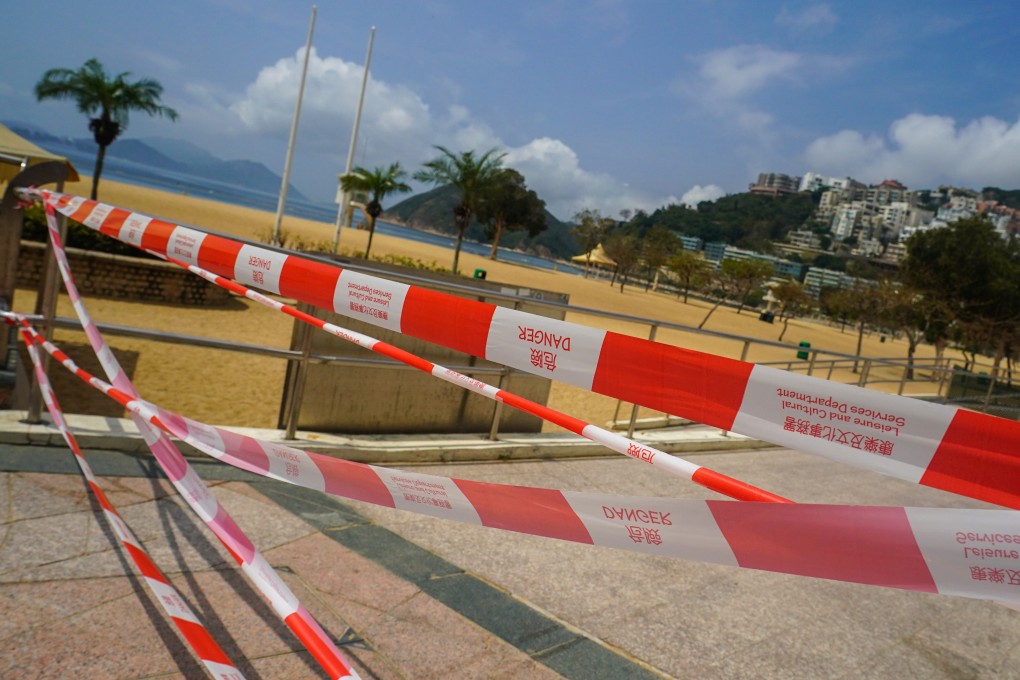Coronavirus: Hong Kong shuts public beaches amid Covid-19 surge, but frustrated residents ask: why can’t we swim and relax?
- Government closes all public beaches amid outcry from mainland Chinese online users over social-distancing measures perceived as lax
- Residents react with mixed emotions, with one restaurant manager urging authorities to give clear deadline to allow businesses to adjust

Residents have expressed their frustration at a decision by Hong Kong authorities to close all public beaches amid a Covid-19 outbreak, while some have called it necessary as a result of frequent social-distancing violations.
On Wednesday, the government announced that all public beaches would close from Thursday until further notice to reduce social gatherings and the risk of virus transmission. The measure kicked in as the city confirmed 21,650 new coronavirus cases.
A source had said the decision followed the circulation of posts on Chinese social media platforms Weibo and WeChat which compared scenes of Shenzhen’s empty streets and closed subway stations with Hong Kong’s crowded beaches and malls.
The posts went viral among mainland online users, who criticised Hong Kong’s looser social-distancing measures, contrasting these with the lockdown across the border. They blamed Hongkongers for contributing to the surge in cases on the mainland.
From 1pm on Thursday, all entry points into Repulse Bay, the city’s most iconic beach, and nearby Deep Water Bay on Hong Kong Island were closed off. The two locations remained deserted throughout the day, despite the warm weather and temperature of 24 degrees Celsius (75.2 degrees Fahrenheit).